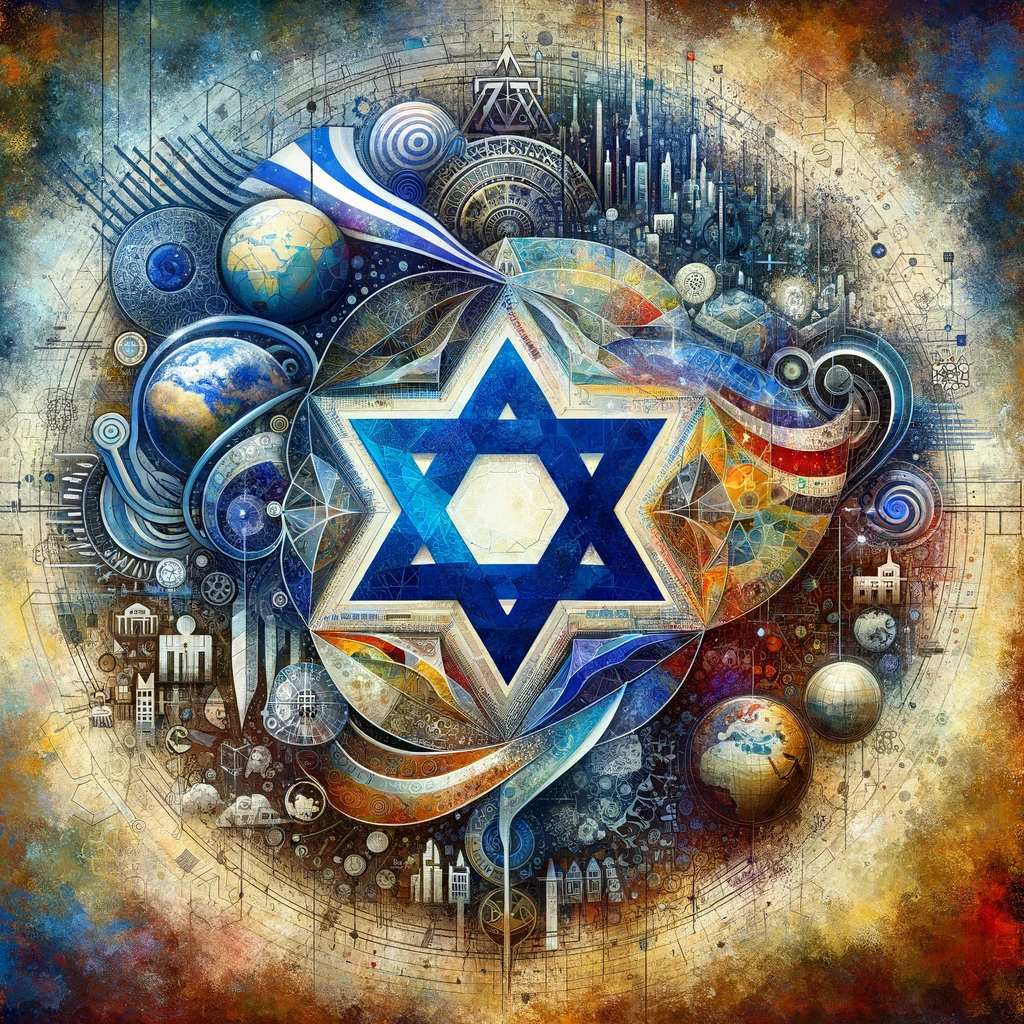
In the maelstrom of geopolitical upheavals and civilizational shifts of our time, Israel finds itself more than just an arena of regional contradictions. Israel is the symbolic center of global processes. For many influential international players, the fate of the Jewish state takes on a sacred, almost eschatological significance. And in this context, Israel’s role as a potential victim on the altar of the new world order is becoming increasingly clear.
Israel in eschatological narratives
Israel is central to the apocalyptic scenarios of the Abrahamic religions – Judaism, Christianity, and Islam. The Promised Land, the Temple Mount, and Jerusalem are key symbols in eschatological worldviews, triggers of the “end times.” Opposing theological traditions see the final drama of human history differently, but agree that the denouement will occur here.
Equally important is Israel’s role in the secular ideological constructs of modernity. For many, Israel remains the last bastion of the “free world,” the “only democracy of the Middle East.” In this optic, the fall of Israel will mean the final collapse of the liberal world order, the triumph of authoritarian forces. For others, on the contrary, the collapse of the Zionist project will be a key step towards overcoming the legacy of Western colonialism and hegemony and establishing a new “multipolar” world.
Geopolitical dimension
Metaphysical meanings are projected onto the field of real geopolitics. Global and regional centers of power view the Israeli factor as a key element in their strategic calculations.
The US and its allies see Israel as a pillar of their influence in the Middle East, an “unsinkable aircraft carrier” in the struggle for control over the region. Israel’s survival and success is seen as a test of the viability of Pax Americana. That is why any scenario of destabilization of the Jewish state raises almost existential anxiety in Washington.
For Russia, Israel is both a potential partner and a geopolitical competitor. Russian elites largely think of the Israeli issue in the context of confrontation with the West and their own civilizational self-assertion. Moscow regards the ability to influence the Middle East agenda and balance between warring camps as an important sign of its great-power status.
The Islamic world, despite all internal divisions, is united in its rejection of Israel as a “Zionist entity.” For Arab regimes, Iran, Turkey, the Palestinian issue remains a key element of legitimization and mobilization of the masses. The demonization of Israel is a convenient tool to channel social discontent outward. At the same time, a number of influential Sunni monarchies view the Jewish state as a potential ally in the fight against the Iranian threat and the Islamist revolution.
China, which is gaining influence in the region, has so far refrained from unambiguous positioning in the Israeli-Palestinian conflict. For Beijing, Israel is interesting primarily as a source of advanced technology. At the same time, the PRC has cultivated ties with the Palestinians and the Arab world, positioning itself as an alternative to American dominance. A clear line on Israel may emerge from China later, as it strengthens its position in the Middle East.

Conclusion
Israel finds itself at the epicenter of global tectonic shifts – religious, ideological, geopolitical. Each of the opposing camps seeks to instrumentalize the Israel issue to its own advantage. Under these conditions, the transformation of the Jewish state into a sacred victim, a redemptive object of other people’s eschatological projections becomes a very real scenario.
To avoid such an outcome, Israel must exercise strategic wisdom and prudence. It is important not to allow external players to manipulate internal Israeli cleavages, to avoid over-dependence on a single patron, to offer an inclusive vision of regional coexistence. Israel’s fate depends on the nation’s internal cohesion, its ability to act as an autonomous entity offering the world an attractive value alternative. Otherwise, the small Jewish state risks being sacrificed on the altar of great power ambitions and civilizational confrontations.
